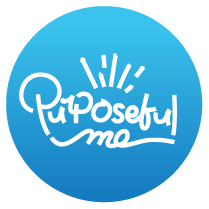
Unleashing the Power of Critical Thinking for Good
In a world brimming with information, critical thinking is needed to guide us through the complexities of life. Its significance extends beyond academic pursuits, permeating every aspect of our existence.
Critical thinking is the art of analysing, evaluating, and synthesising information to make informed decisions. It means not accepting information at face value, encouraging individuals to question assumptions, consider multiple perspectives, and develop well-reasoned conclusions. This skill is a cornerstone for success in both personal and collective endeavours.
Why do we need Critical Thinking?
Informed Decision-Making
Critical thinking helps us to sift through a barrage of information, enabling us to make decisions rooted in reason rather than impulse. It helps us not to follow the masses in their mass hysteria. This skill is invaluable in personal choices and vital for leaders shaping the trajectory of organisations or societies.

Problem Solving
Life is rife with challenges and many problems require us to take a step back and work with moving pieces; critical thinking is the key to navigating through them. By dissecting problems, considering various solutions, and anticipating consequences, we can approach challenges with a strategic mindset.
Effective Communication
The ability to articulate thoughts clearly and persuasively is a hallmark of critical thinking. It fosters open dialogue and constructive discourse, fostering collaboration rather than conflict in both personal, societal and professional relationships.
Adaptability
In a rapidly evolving world, adaptability is key. Critical thinkers are more resilient, as they can analyse changing circumstances, adjust their perspectives, and navigate uncertainty with agility.
Here are some tips on deploying Critical Thinking for Personal Growth
Self-Reflection
Start by reflecting on your own thought processes and biases. We all have bias ingrained in us and what we must learn to do is understand them so we can consciously take actions to address them and make sure the biases are not altering our behaviours, decisions and actions.
Acknowledge preconceived notions and be open to challenging them. This introspection lays the foundation for unbiased reasoning.

Continuous Learning
Embrace a mindset of perpetual learning. Look for diverse sources of information, explore new subjects, and engage with ideas that challenge your existing beliefs. This intellectual curiosity sharpens critical thinking skills.
Growing up in Nigeria, my dad exposed us to philosophical, political, economic and religious debates. The daily newspapers provided the day’s topics for conversation which meant I was always open to learning and listening to other views even when I struggle to accept them.
Question Everything
Don’t shy away from questioning information, be it from trusted sources or your own beliefs. Ask why, how, and what if. This habit fosters a habit of intellectual curiosity and helps in uncovering deeper insights.
Some cultures and societies don’t encourage this as you are meant to defer to those in authority, those older than you and especially religious figures. Questioning everything is something we have to embrace but we have to do this with an open mind to avoid being fixated on our own perspectives.
Here are some tips to cultivating ‘Collective Critical Thinking’
Encourage Dialogue
Foster an environment where open dialogue is valued. Encourage diverse perspectives and create platforms for constructive discussions. Collective critical thinking thrives in an atmosphere where ideas can clash and evolve.

Encourage dialogue within your families, in the workplaces and in any community programmes you are involved in. We can learn from everyone’s perspectives.
Educational Reforms
Advocate for educational systems that prioritise critical thinking over memorisation. Equip the younger generation with the tools to analyse, synthesise, and apply knowledge rather than regurgitate facts. Find opportunities to mentor people from different generations and cultures to encourage exchange of ideas.
Media Literacy
Equip individuals with the skills to critically assess media and information sources. By discerning credible information from misinformation, society can resist manipulation and make informed decisions.
There is so much content out there with different agendas pushed so sifting through to only hold on to what is good, true, and right is getting harder by the day so we have to get better at the process of figuring things out.
In a world propelled by change, critical thinking is not a nice to have. By nurturing this skill within ourselves, and cultivating it in our communities, we can go on a journey of continuous growth, where reasoned decisions shape a collective future grounded in understanding and progress.
Sorry, the comment form is closed at this time.


Adetitun.
This is a nice motivation. It is needed by everyone everywhere. It is especially needed by we that live in Nigeria in this trying time. Thank you.
Adetitun.
This is a nice motivation. It is needed by everyone everywhere. It is especially needed by we that live in Nigeria in this trying time. Thank you.
Olayemi Bayode
Thank you for taking the time to comment. It’s much appreciated. Indeed creative thinking is one of the most sought after survival skills as the whole world navigates new challenges everyday.